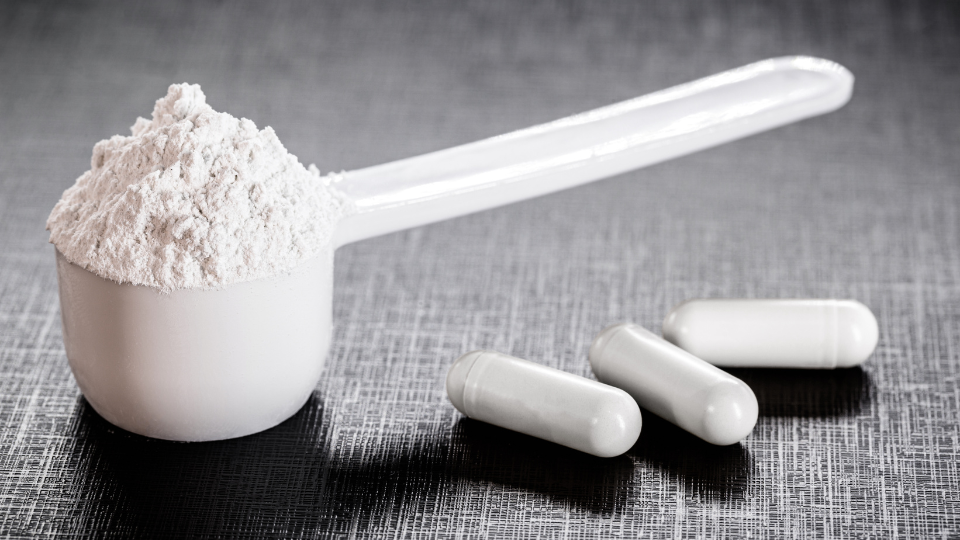This site contains product affiliate links. We may receive a commission, at no cost to you, if you make a purchase after clicking on one of these links. See Disclaimer.
In the world of supplements, L-Carnitine has earned its spot as a popular and effective choice for those seeking to enhance their fitness and well-being. This amino acid and nutrient play a crucial role in the human body, particularly in the energy production process. In this article, we’ll delve into the intricacies of L-Carnitine, exploring its types, benefits, and the optimal times to incorporate it into your daily routine.

Understanding L-Carnitine:
L-Carnitine is a naturally occurring amino acid derivative that is vital for the transport of fatty acids into your cells’ mitochondria, the powerhouses responsible for generating energy. This process is essential for the production of adenosine triphosphate (ATP), the body’s primary energy currency.
L-Carnitine is primarily obtained through the consumption of various foods, particularly those of animal origin. Here are some dietary sources of L-Carnitine:
- Red Meat: Red meat, such as beef and lamb, is one of the richest sources of L-Carnitine. Beef contains a substantial amount of this amino acid, especially in cuts like sirloin and ground beef.
- Fish: Fish and seafood are good sources of L-Carnitine. Codfish, salmon, and tuna, in particular, provide a decent amount of this nutrient. Among these, codfish tends to have higher L-Carnitine content.
- Poultry: Chicken and turkey are also good sources of L-Carnitine. Chicken breast, in particular, is a lean option that contains a reasonable amount of this amino acid.
- Dairy Products: Milk and dairy products, such as cheese, contain L-Carnitine. However, the levels are lower compared to meat and fish.
- Avocado: Avocado is one of the few plant-based sources of L-Carnitine. While the levels are not as high as in animal products, avocados can contribute to your overall intake.
- Milk Products: Certain fermented milk products, such as yogurt, also contain L-Carnitine. Again, the amounts are relatively lower compared to meat and fish.
- Whole Wheat Bread: Some grains and cereals, especially whole wheat bread, may contain small amounts of L-Carnitine.
- Asparagus: Asparagus is a vegetable that contains a moderate amount of L-Carnitine. It can be a good addition to a balanced diet.

It’s important to note that L-Carnitine from animal-based sources is more readily absorbed by the body compared to plant-based sources. For individuals following vegetarian or vegan diets, supplementation or a careful selection of plant-based foods can help ensure adequate L-Carnitine intake. Additionally, the body can produce L-Carnitine endogenously from amino acids lysine and methionine, but dietary sources still play a crucial role in maintaining optimal levels.
Types of L-Carnitine:
There are various forms of L-Carnitine supplements available, with L-Carnitine and Acetyl L-Carnitine being the most common. The key difference lies in their chemical structures and functions. L-Carnitine primarily focuses on energy metabolism, while Acetyl-L-Carnitine has additional properties that make it unique and potentially more beneficial for brain function.
Benefits of L-Carnitine:
- Fat Metabolism: Numerous studies have highlighted L-Carnitine’s role in enhancing fat metabolism, making it a go-to supplement for individuals in a fat loss phase. Research published in the “Journal of Physiology” found that L-Carnitine supplementation increased fat oxidation during exercise, ultimately promoting weight loss & fat loss.
- Exercise Performance: L-Carnitine has been shown to improve exercise performance by reducing fatigue and enhancing recovery. A study in the “International Journal of Sports Nutrition and Exercise Metabolism” reported that athletes who took L-Carnitine experienced reduced muscle damage and improved exercise performance.
- Heart Health: Research published in the “American Heart Journal” suggests that L-Carnitine may have cardiovascular benefits. It can help improve symptoms in individuals with heart conditions, potentially reducing the risk of adverse cardiac events.

Here’s how Acetyl-L-Carnitine may specifically contribute to cognitive well-being compared to L-Carnitine:
- Crossing the Blood-Brain Barrier: Acetyl-L-Carnitine has the ability to cross the blood-brain barrier more effectively than L-Carnitine. This barrier protects the brain from potentially harmful substances but can also limit the entry of beneficial compounds. Acetyl-L-Carnitine’s ability to penetrate the blood-brain barrier allows it to exert its effects more directly in the brain.
- Acetyl Group Attachment: The “acetyl” group in Acetyl-L-Carnitine is a key difference. This acetyl group can donate acetyl groups to the production of acetylcholine, a neurotransmitter involved in memory and learning. Acetylcholine is crucial for various cognitive functions, and deficiencies in this neurotransmitter are linked to conditions like Alzheimer’s disease.
- Neuroprotective Properties: Acetyl-L-Carnitine possesses neuroprotective properties, which means it may help protect the brain from oxidative stress and age-related damage. Some studies suggest that ALCAR may have a positive impact on the prevention and treatment of neurodegenerative conditions, including Alzheimer’s disease.
- Improved Mitochondrial Function: Both forms of Carnitine play a role in mitochondrial function, the energy-producing centers within cells. However, Acetyl-L-Carnitine is specifically linked to supporting mitochondrial function in the brain. Enhanced mitochondrial function can contribute to overall cognitive health.
- Cognitive Enhancement: Several studies have explored the cognitive-enhancing effects of Acetyl-L-Carnitine. It has been suggested to improve memory, attention, and overall cognitive function, making it a subject of interest for conditions involving cognitive decline.

Best Time to Take L-Carnitine:
Timing plays a crucial role in maximizing the benefits of L-Carnitine. For the best results are the recommended times:
- Pre-Workout: Taking L-Carnitine before exercise can enhance fat burning and boost energy levels. A study in the “Journal of Strength and Conditioning Research” found that pre-workout L-Carnitine supplementation increased endurance and oxygen consumption during exercise.
- Post-Workout: Consuming L-Carnitine post-exercise aids in muscle recovery and reduces muscle soreness. This is especially beneficial for individuals engaging in intense or prolonged workouts.
- With Meals: Some studies suggest that taking L-Carnitine with meals may improve its absorption. It can be particularly useful for those with weight loss goals, as it may enhance the utilization of dietary fats for energy.

Dosage Recommendations:
The optimal dosage of L-Carnitine can vary based on individual factors such as body weight, activity level, and overall health. However, a recommended dosage range is 500-2,000 milligrams per day. It’s essential to start with a lower dose and gradually increase it while monitoring your body’s response. You can split up your dosage between the recommended times to take L-Carnitine, such as having 1,000 milligrams pre-workout followed by 1,000 milligrams post-workout.
L-Carnitine & PCOS:
Polycystic Ovary Syndrome (PCOS) is a common hormonal disorder among women of reproductive age, and it often comes with various metabolic and reproductive challenges. Some studies have investigated the potential benefits of L-Carnitine supplementation for women with PCOS. Here’s a brief overview of how L-Carnitine may be helpful in managing PCOS based on existing research:

- Improved Insulin Sensitivity: One of the primary issues associated with PCOS is insulin resistance, leading to elevated insulin levels. L-Carnitine has been studied for its potential to improve insulin sensitivity. A study published in the “European Journal of Clinical Investigation” found that L-Carnitine supplementation in women with PCOS resulted in improved insulin sensitivity, suggesting a potential role in managing metabolic aspects of PCOS.
- Reduced Cardiovascular Risk Factors: Women with PCOS often face an increased risk of cardiovascular disease due to factors such as insulin resistance and dyslipidemia. L-Carnitine has been shown to have positive effects on lipid profiles and cardiovascular risk factors. A study published in the “International Journal of Endocrinology and Metabolism” reported that L-Carnitine supplementation led to improvements in lipid profiles and decreased cardiovascular risk factors in women with PCOS.
- Enhanced Fertility: PCOS is a common cause of infertility, and L-Carnitine may play a role in improving fertility outcomes. A study in the “Journal of Assisted Reproduction and Genetics” found that L-Carnitine supplementation improved oocyte and embryo quality in women with PCOS undergoing in vitro fertilization (IVF).
- Reduction in Hyperandrogenism: Elevated androgen levels contribute to many of the symptoms of PCOS, such as hirsutism and acne. Some studies suggest that L-Carnitine may help reduce hyperandrogenism. A study in the “International Journal of Gynaecology and Obstetrics” demonstrated a reduction in serum androgen levels in women with PCOS after L-Carnitine supplementation.
- Regulation of Menstrual Cycles: Irregular menstrual cycles are a common symptom of PCOS. L-Carnitine has been investigated for its potential to regulate menstrual cycles in women with PCOS. A study published in “Fertility and Sterility” reported that L-Carnitine supplementation resulted in improved menstrual regularity in women with PCOS.
It’s important to note that while these studies suggest potential benefits, more research is needed to establish the optimal dosage, duration, and long-term effects of L-Carnitine supplementation in the context of PCOS. Before considering L-Carnitine or any other supplement, it’s advisable to consult with a healthcare professional, especially for individuals with existing health conditions or those taking medications.
Conclusion:
Incorporating L-Carnitine into your supplement regimen can be a game-changer for your fitness and well-being. Understanding the different types, benefits, and optimal timing for consumption empowers you to make informed decisions about how to integrate this powerhouse amino acid into your daily routine. Whether you’re wanting to boost athletic performance, support weight loss, or enhance cognitive function, L-Carnitine might just be the supplement you have been looking for.
